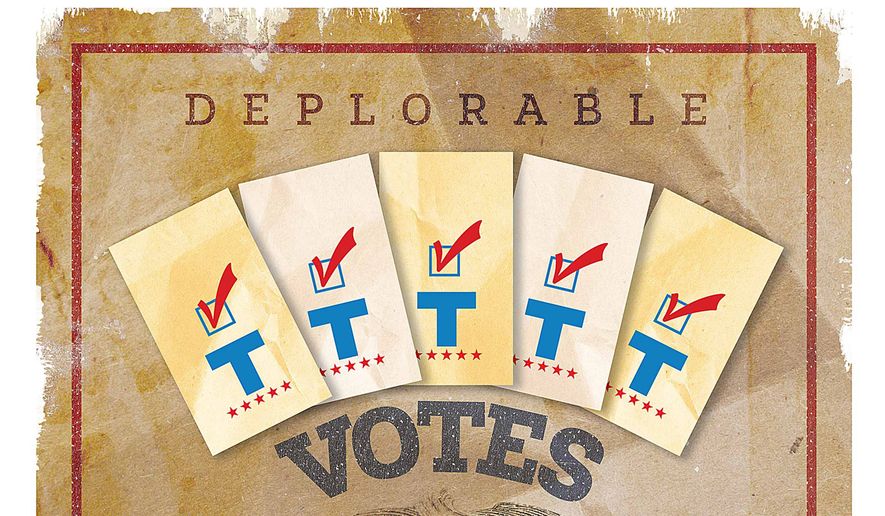OPINION:
The 1829 inauguration of Andrew Jackson ranks as the most raucous in American history. Presidents in those days traditionally held open house for the general public after being sworn in, but no one anticipated that hordes of Jackson’s rough-and-tumble supporters would descend on the nation’s capital for the big day or that they would troupe over to the White House following his inaugural address to shake his hand and guzzle free booze.
The party soon spun out of control. China and glassware were smashed, punch bowls and liquor spilled, and mud tracked over fine carpets as men in dirty boots stood on chairs to get a better look at the new president. Washington’s more sedate residents surveyed the chaos and shuddered. They no doubt saw his supporters as “a basket of deplorables,” but historians today view this event as symbolizing a seismic shift in American politics: the Jacksonian Revolution.
The Jacksonian Revolution was a reaction to much the same kind of elitism and condescension that Hillary Clinton displayed when she told a select group of her snotty, well-heeled contributors in Manhattan that half of Donald Trump’s supporters are “deplorables” and the other half, in effect, a bunch of losers who aren’t smart enough to vote for her.
Some things never seem to change. Until Jackson ran for president, our politics were reserved for the well-heeled elite. Four of our first six presidents were aristocratic Virginia plantation owners, while the other two were father and son and scions of an old New England family.
Jackson set out to crash this cozy gentlemen’s club. A man of humble origins he became our first “frontier” president; the first from the West rather than a member of the East Coast establishment.
He first ran in 1824. There were four candidates that year: Secretary of State John Quincy Adams, Secretary of the Treasury William H. Crawford, Speaker of the House Henry Clay, and Jackson himself, then a Tennessee senator.
Jackson won the most popular votes and the most electoral votes, but he not a majority of either. So it fell to the House of Representatives to choose the president from among the three top vote-getters — Jackson, Adams and Crawford. Clay, who came in fourth, could not be considered for the presidency but threw his considerable influence behind Adams, who won and later made him his secretary of State.
Jackson was furious at this “corrupt bargain.” To him, it seemed that an unscrupulous political elite had stolen the election. The people agreed. Notwithstanding the fact that Jackson was by then a wealthy cotton grower, they saw him as the champion of the common man and elected him four years later by a landslide.
Jackson arrived in Washington determined to make the national government a true government of the people.
There was no civil service in those days. All federal offices were by appointment. Jackson felt that if appointees remained in office too long, it bred elitism and corruption. “I cannot but believe,” he said in his first message to Congress, “that more is lost by the long continuance of men in office than is generally to be gained by their experience.” He was right. When he took office, he found evidence of widespread misuse of funds.
Jackson held that “Offices were not established to give support to particular men at the public expense.” Accordingly, regular turnover of federal office holders not only limited opportunities for corruption, but democratized the government by giving more citizens the opportunity to serve.
Jackson then turned his attention to the Second Bank of the United States. The name of the bank is misleading. While it did serve as the depository for federal funds, it was a private, for-profit corporation with 80 percent of its stock in the hands of wealthy American and foreign investors.
The new president believed that it was wrong for private individuals to profit from lending public money. Add to that the fact that the bank could influence the government by making loans to politicians and doing them favors, an early example of “crony capitalism.” “The rich and powerful too often bend the acts of government to their selfish purposes,” Jackson warned in a message to Congress vetoing a bill to recharter the bank.
Jackson’s policies were controversial at the time, and are still vigorously debated by historians, but Jackson rocked the political establishment and made government more accountable to the people.
Could we have a second Jacksonian Revolution? That depends on whether the American people trust Donald Trump to lead one.
We know that like Andrew Jackson, Mr. Trump can be brusque, strong-willed and single-minded. But isn’t that just the kind of man it takes to really shake things up in Washington? If it takes a little spilled liquor, smashed china and muddy carpets to put the people back in charge, I say bring them on.
• Thomas C. Stewart is a retired New York investment banker and a former U.S. Naval Attack Commander.




Please read our comment policy before commenting.